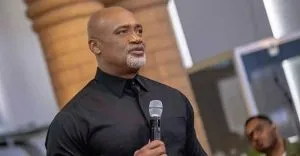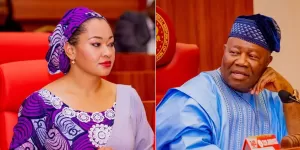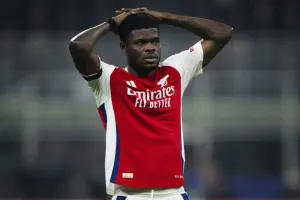President Tinubu Hosts Delta State Governor Sheriff Oborevwori at Presidential Villa

President Bola Ahmed Tinubu received Delta State Governor, Sheriff Oborevwori, in a closed-door meeting at the Presidential Villa in Abuja. The meeting, described as significant by multiple sources, underscores the growing political alignment between the presidency and the Delta State government following Oborevwori’s recent defection to the All Progressives Congress (APC).
Governor Oborevwori, who arrived at the State House around midday, was welcomed by President Tinubu for what insiders termed a “crucial discussion.” While the specifics of the meeting were not disclosed, it comes on the heels of Oborevwori’s high-profile defection from the Peoples Democratic Party (PDP) to the APC on April 23, 2025. The defection, which included former Delta State Governor Ifeanyi Okowa and several other PDP chieftains, marked a significant shift in the political landscape of Delta State, a key player in Nigeria’s oil-rich South-South region.
The move to the APC was framed by Oborevwori as a strategic decision to align Delta State with the ruling party at the federal level, ensuring greater collaboration and support for his administration’s developmental agenda. In a statement following his defection, Oborevwori praised President Tinubu for his leadership and expressed gratitude for the president’s support, particularly in areas of infrastructure and economic development in Delta State. He also signaled his commitment to mobilizing support for Tinubu’s anticipated re-election bid in 2027, positioning himself as a key ally in the South-South region.
Political analysts suggest that the meeting between Tinubu and Oborevwori likely focused on consolidating this new alliance, discussing governance priorities, and addressing regional challenges. Delta State, a major oil-producing state, plays a critical role in Nigeria’s economy, and issues such as security in the Niger Delta, oil theft, and infrastructure development are perennial concerns. The meeting may also have touched on strategies to strengthen the APC’s foothold in Delta State, which has historically been a PDP stronghold.
Oborevwori’s defection and subsequent engagement with Tinubu reflect broader political realignments in Nigeria as the 2027 general elections approach. The APC has been actively working to expand its influence in the South-South and South-East regions, where it has traditionally faced stiff opposition from the PDP and other regional parties. Oborevwori’s switch to the APC, alongside other prominent figures, is seen as a boost to Tinubu’s efforts to unify the party and broaden its national appeal.
The meeting also highlights Tinubu’s ongoing engagement with state governors to foster cooperation between federal and state governments. Since assuming office, Tinubu has prioritized dialogue with governors across party lines to address Nigeria’s pressing challenges, including economic reforms, security, and youth unemployment. His administration has emphasized policies aimed at improving fiscal federalism, with recent reforms granting greater financial autonomy to local governments—a move that has implications for states like Delta.
While no official statement was released after the meeting, sources close to the Delta State government indicated that Oborevwori expressed satisfaction with the discussions and reaffirmed his commitment to working with the Tinubu administration. The governor is expected to leverage his new political alignment to secure federal support for key projects in Delta State, including the completion of the Warri Port dredging, road infrastructure, and initiatives to boost the state’s internally generated revenue.
As Nigeria navigates a complex political and economic landscape, the Tinubu-Oborevwori meeting signals a deepening partnership between the federal government and Delta State. With Oborevwori now a prominent APC figure, the state is poised to play a pivotal role in shaping the ruling party’s strategy in the South-South region ahead of the 2027 elections.
The outcome of this meeting and its implications for Delta State and the broader political scene will likely become clearer in the coming weeks as both leaders continue to navigate Nigeria’s dynamic political terrain.







